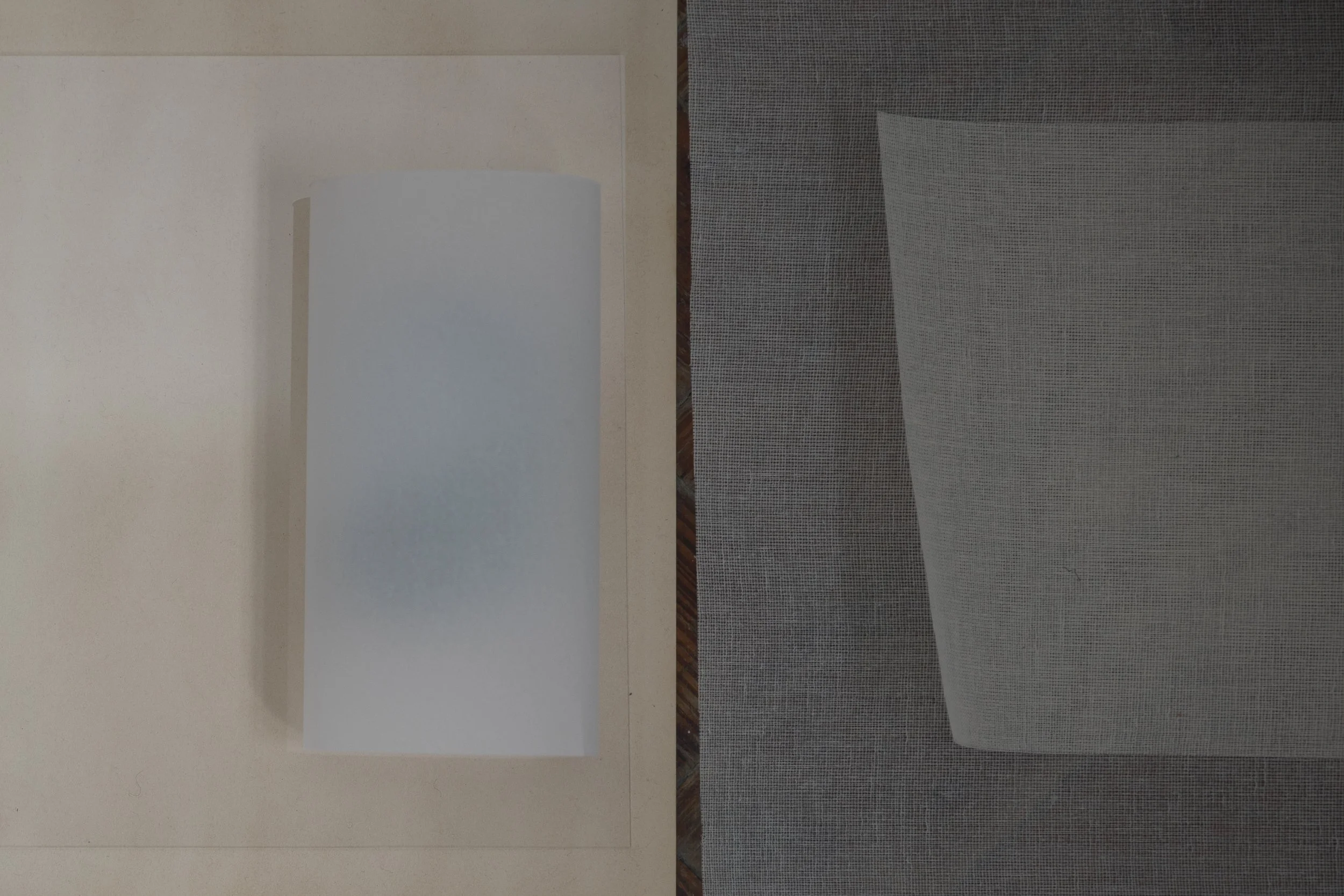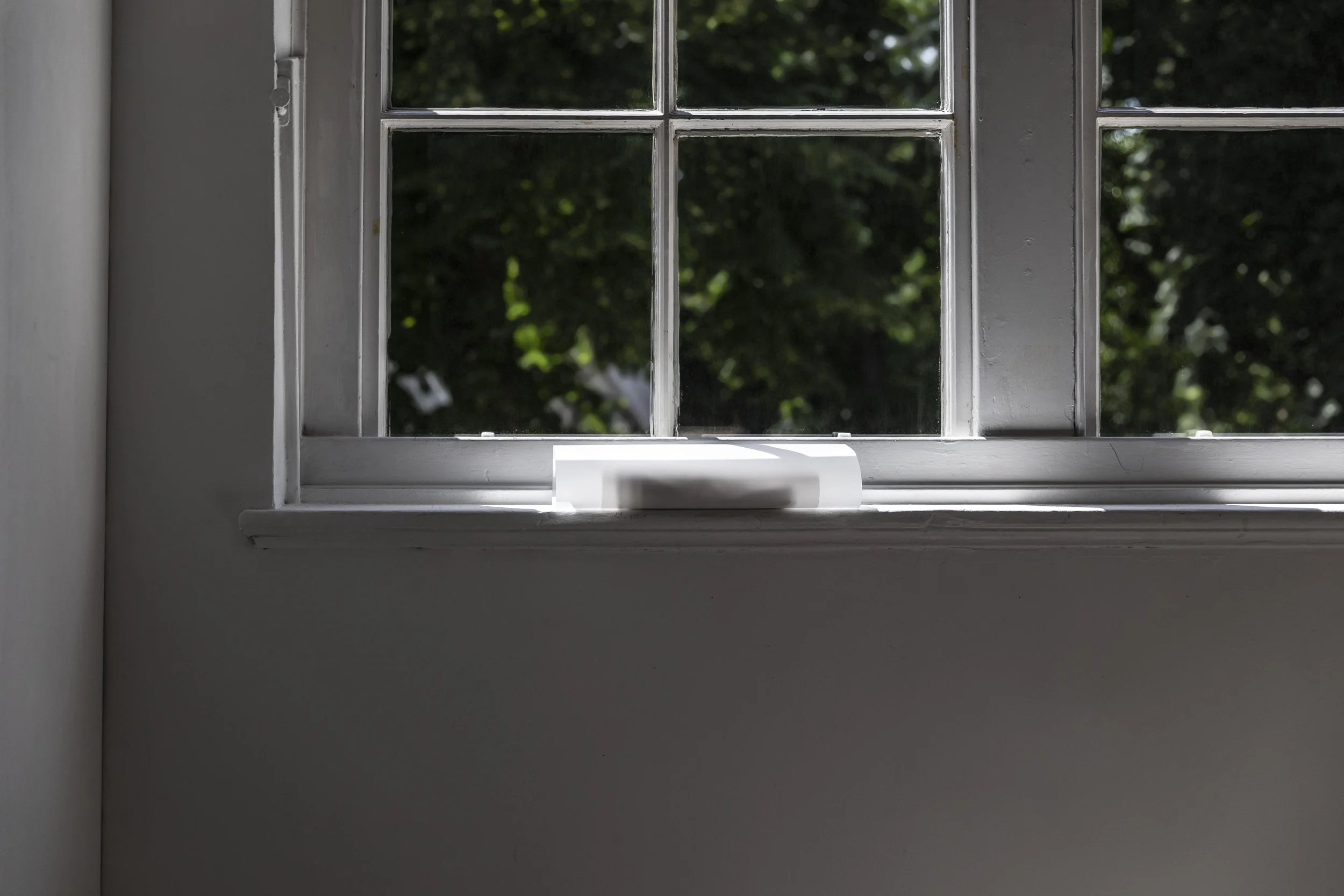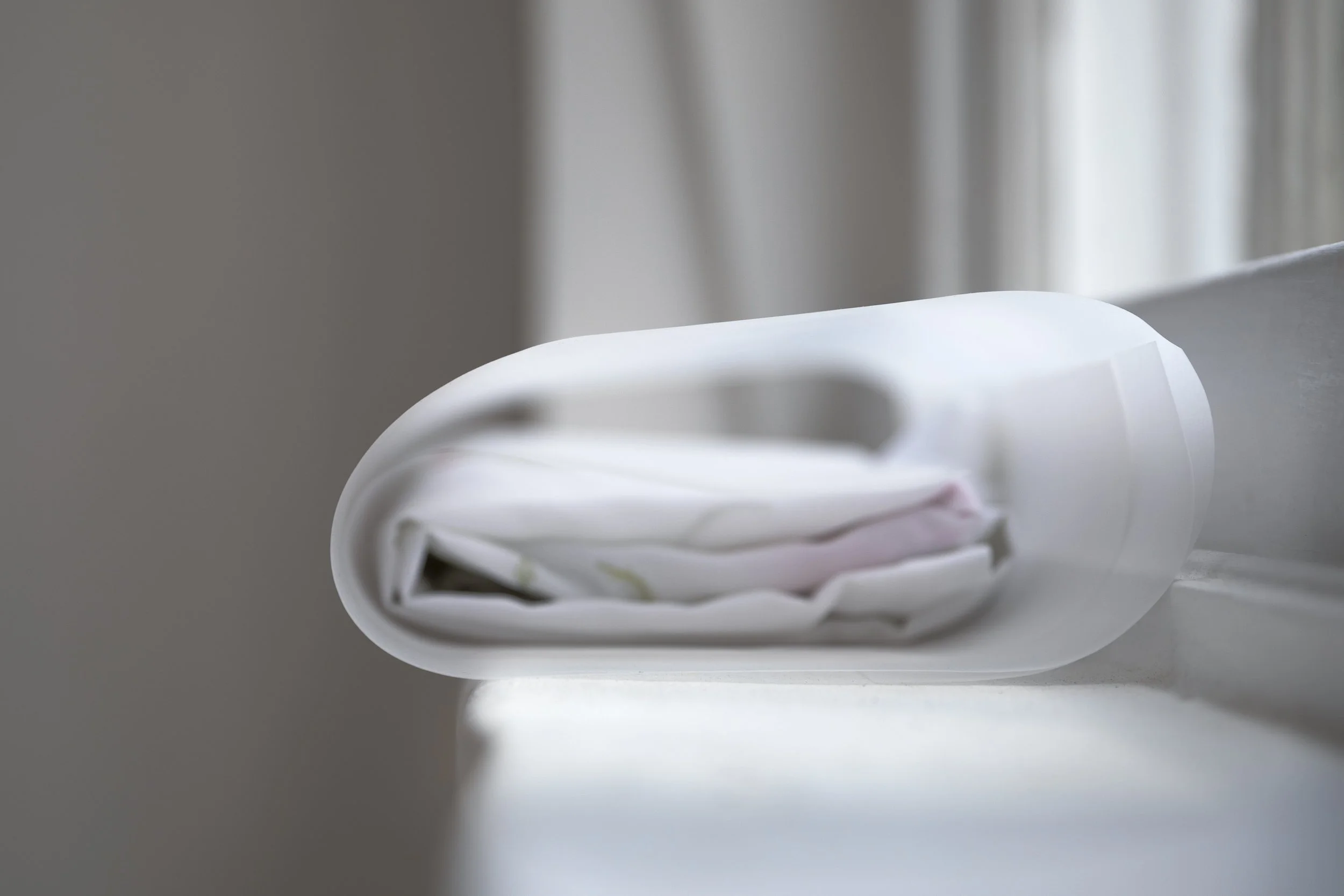mother’s dress, wrapped
longing
longing, longing, longing
25 dearest belongings
longing for peace
longing
a hidden poem
longing for reunion
i carry them half the globe, i sleep in them, i eat in them, they are the comfort of my day
mother’s bowl
❍❍❍
There are two poems, hidden somewhere within the installation.
One laments the sorrow and loneliness of a wife, longing for a reunion with her soldier husband, longing for a peaceful life and for the war to end. The other seems to offer comfort to the author himself after the tragic death of his daughter, reminding that winter is followed by spring and everything follows its own law.
The former—Chinh Phụ Ngâm Khúc (Femme de Guerrier, élégie)—was written by the Vietnamese scholar Đặng Trần Côn in the 18th century. The latter—Vois, cette branche est rude…—was composed by Victor Hugo in the early 1850s.
I met Đặng Trần Côn’s verses in mourning, as I began to live in Her absence, my mother. In one pericope, the author borrows the image of ordinary pillows and rice, to give form to the void carried by the one left behind:
Sầu ôm nặng, hãy chồng làm gối
Muộn chứa đầy, hãy thổi làm cơm
Mượn hoa mượn rượu giải buồn
Sầu làm rượu nhạt, muộn làm hoa ôi.
(Mon chagrin infini s'empile tous les jours ;
Je m'appuie là-dessus comme sur des coussins.
Mon cœur est gros d'ennui: j'en fais ma nourriture.
J'appelle à ma rescousse et la fleur et le vin :
Le vin s'affadit à cause de mon chagrin
Et la fleur s'étiole au contact de mon ennui.
(Femme de Guerrier (élégie), trl. to French by Huỳnh Khắc Dụng, 1969, as found in the British Library)
The poem by Victor Hugo revealed itself to me in its Vietnamese translation, in my mother’s diary, a piece of her belongings I only came to hold in the summer of the previous year. Vois, cette branche est rude… was published in 1856, in the deeply personal collection Les Contemplations, under the section Pauca Meae—a few things of/for my beloved.
Twenty-five dearest belongings, some gifted, others inherited, a few rescued, and many preserved. Here, they are all wrapped very gently, in semi-opaque paper.
There is a quiet bitterness, seeing the precious now laid down, on the cold, hard ground.
A friend once asked if this was about my mother. I hesitated.
She is here, in these objects. I keep them alive because of my stubborn grief. I carry them across the globe. I sleep in them. I eat in them. They are the comfort of my day.
But “longing, longing, longing…” isn’t about my mother, for I tell no story of her.
It is about longing.
Longing for peace. Longing for stability. Longing for love.
❍❍❍
At this point, not many things in the man-made world can move me more beautifully than a blank piece of paper.
Here, I make space for the empty page of my photographic prints — the reverso — for they have waited too long, uncherished.
‘Are you not confident in the recto?’ one friend curious.
This time, there is only contentment.
I think of the Shroud of Turin and its allure.
It is alluring because it is always hidden.















